Did you know that green cabbage is not only a versatile vegetable but also a nutritional powerhouse with numerous health benefits? Whether you love it in salads, stir-fries, or soups, green cabbage can provide you with essential vitamins, minerals, and antioxidants to support your overall well-being. Let’s dive deeper into the impressive health benefits of green cabbage and learn some helpful tips on incorporating this nutritious vegetable into your diet.
Key Takeaways:
- Green cabbage is packed with vitamins, minerals, and antioxidants.
- It is an excellent source of vitamin C, fiber, and vitamin K.
- Cabbage supports digestion, heart health, and may help reduce inflammation.
- It is associated with a lower risk of certain cancers, thanks to its phytochemical content.
- When selecting, growing, and cooking cabbage, keep in mind the various varieties and techniques available.
Nutritional Profile of Green Cabbage
When it comes to nutrition, green cabbage is a powerhouse. Just 1 cup of raw green cabbage contains a mere 22 calories, making it an excellent choice for those watching their calorie intake. But don’t let its low calorie count fool you – this cruciferous vegetable is packed with essential vitamins, minerals, and antioxidants that will benefit your overall health.
One of the standout nutrients in green cabbage is vitamin C. In fact, a single cup of raw cabbage provides a whopping 36% of the Daily Value for vitamin C. This potent antioxidant plays a vital role in supporting your immune system and protecting your cells from damage caused by harmful free radicals.
Green cabbage is also rich in vitamin K, which is essential for blood clotting and bone health. Fiber, another important nutrient found in cabbage, helps keep your digestive system running smoothly and aids in maintaining a healthy weight.
But the nutritional benefits don’t stop there. Green cabbage is a good source of manganese, vitamin B6, and folate, which contribute to energy production and cell function. It also contains smaller amounts of other micronutrients, including vitamin A, iron, and riboflavin.
| Nutrient | Amount per 1 cup (raw) |
|---|---|
| Vitamin C | 36% of the Daily Value |
| Vitamin K | 38% of the Daily Value |
| Fiber | 2.2 grams |
| Manganese | 11% of the Daily Value |
| Vitamin B6 | 9% of the Daily Value |
| Folate | 6% of the Daily Value |
| Vitamin A | 2% of the Daily Value |
| Iron | 2% of the Daily Value |
| Riboflavin | 2% of the Daily Value |
The Power of Antioxidants
One of the key reasons why green cabbage is touted for its health benefits is its high content of antioxidants. Antioxidants are compounds that help protect your body’s cells from damage caused by oxidative stress. Green cabbage contains various antioxidants, including polyphenols and sulfur compounds, which have been linked to reduced inflammation and a lower risk of chronic diseases.
Ready to reap the benefits of green cabbage? Check out the next section for a closer look at its numerous health benefits and how they can enhance your well-being.
Health Benefits of Cabbage
Cabbage is not only delicious but also offers a wide range of health benefits. Let’s explore how this leafy vegetable can support your overall well-being.
1. Digestion
Cabbage is a fantastic food for digestion. It is rich in fiber, which adds bulk to your stool and promotes regular bowel movements. The high fiber content also supports a healthy gut microbiome, providing nourishment for beneficial bacteria. This helps maintain a healthy digestive system and aids in nutrient absorption.
2. Heart Health
The health benefits of cabbage extend to your cardiovascular system. The antioxidants found in cabbage, such as anthocyanins, help reduce inflammation in the body. Chronic inflammation is a key contributing factor to heart disease. By adding cabbage to your diet, you can potentially lower your risk of developing heart problems and improve your overall heart health.
3. Inflammation
Inflammation is the body’s natural response to injury or infection. However, chronic inflammation can contribute to the development of various diseases, including cancer and arthritis. Cabbage contains antioxidants that help fight inflammation, including anthocyanins, sulforaphane, and kaempferol. By including cabbage in your meals, you can reduce chronic inflammation and promote a healthier immune system.
4. Cancer Prevention
Cabbage is a cruciferous vegetable known for its cancer-fighting properties. It contains phytochemicals called glucosinolates, which have been studied for their ability to inhibit the growth of cancer cells and prevent tumor formation. Additionally, its high antioxidant content helps protect cells from damage caused by free radicals, reducing the risk of various types of cancer.
Now that you know the incredible health benefits of cabbage, it’s time to incorporate this nutritious vegetable into your diet. Try adding it to salads, stir-fries, soups, or even enjoy it fermented as sauerkraut. Not only will you enhance the flavors of your meals, but you will also be doing your body a favor by providing it with essential nutrients and promoting optimal health.
Cabbage and Digestive Health
Cabbage is a treasure trove of benefits when it comes to improving digestion. Thanks to its high fiber content, this fiber-rich vegetable can contribute significantly to your digestive health.
Firstly, cabbage contains gut-friendly insoluble fiber. This type of fiber adds bulk to stool, which helps promote regular bowel movements. By keeping your digestive system on track, cabbage can aid in preventing constipation and maintaining a healthy digestive rhythm.
Additionally, cabbage is rich in soluble fiber, another gut-friendly component. Soluble fiber acts as a prebiotic, nourishing the beneficial bacteria in your gut. This fiber serves as the main fuel source for these bacteria, enabling them to produce essential nutrients and protect your immune system.
So, by incorporating cabbage into your diet, you can improve your digestion, support the growth of beneficial gut bacteria, and ensure a healthy, harmonious digestive system.
If you want to reap the full benefits of cabbage for digestion, consider enjoying it both raw and cooked. Raw cabbage is rich in enzymes that aid digestion, while cooked cabbage’s soluble fiber becomes more easily accessible to your gut microbiota.
The Incredible Digestive Advantages of Cabbage
| Fiber Type | Benefits |
|---|---|
| Insoluble Fiber | Adds bulk to stool and supports regular bowel movements, preventing constipation. |
| Soluble Fiber | Increases beneficial gut bacteria, which produce essential nutrients and protect the immune system. |
Cabbage and Heart Health
When it comes to maintaining a healthy heart, incorporating cabbage into your diet can be beneficial. This cruciferous vegetable contains compounds called anthocyanins, which have been linked to a reduced risk of heart disease.
One way cabbage contributes to heart health is by helping to lower blood pressure. It is a natural source of potassium, a mineral that plays a vital role in regulating blood pressure. Additionally, cabbage contains substances that relax blood vessel walls, further supporting cardiovascular health.
Cabbage is also effective in lowering cholesterol levels, another important factor in heart health. It contains soluble fiber, which helps to reduce the levels of “bad” cholesterol (LDL cholesterol) in the blood. Furthermore, cabbage contains phytosterols, plant compounds that compete with cholesterol for absorption. As a result, they help to lower overall cholesterol levels and reduce the risk of heart problems.
By incorporating cabbage into your meals, you can reap the heart-healthy benefits it provides. Whether enjoyed raw in salads, sautéed as a side dish, or incorporated into soups and stews, cabbage is a versatile and nutritious addition to any diet.
Cabbage and Inflammation
When it comes to reducing inflammation, cabbage proves to be a powerful ally. This humble vegetable contains antioxidants called anthocyanins, which have notable anti-inflammatory properties. These compounds play a crucial role in combating chronic inflammation, a condition linked to various diseases, including heart disease and rheumatoid arthritis.
Cabbage’s anti-inflammatory effect can be attributed to its rich antioxidant content, which includes sulforaphane and kaempferol. These antioxidants work together to neutralize harmful free radicals in the body and reduce oxidative stress, ultimately alleviating inflammation and supporting overall health.
| Antioxidant | Anti-Inflammatory Benefits |
|---|---|
| Anthocyanins | Reduce chronic inflammation |
| Sulforaphane | Alleviate inflammation and oxidative stress |
| Kaempferol | Combat inflammation and protect against chronic diseases |
Incorporating cabbage into your diet can contribute to the management of chronic inflammation and promote overall well-being. By choosing to consume this versatile vegetable regularly, you may experience the remarkable anti-inflammatory effects it offers.
Cabbage and Vitamin C
Vitamin C, also known as ascorbic acid, is abundant in cabbage. It plays a vital role in the production of collagen, the protein responsible for the structure and flexibility of the skin, bones, muscles, and blood vessels.
Vitamin C is a potent antioxidant that protects the body from damage caused by free radicals. It helps to neutralize these harmful molecules and prevent oxidative stress, which can lead to various chronic diseases.
One of the key benefits of vitamin C is its potential role in cancer prevention. As an antioxidant, vitamin C helps to protect DNA from damage, which can contribute to the development of cancer cells. While more research is needed to establish a definitive link, studies have shown promising results in terms of vitamin C’s potential anti-cancer properties.
The Benefits of Vitamin C in Cabbage:
- Collagen production: Vitamin C is essential for the synthesis of collagen, an important component of connective tissues.
- Antioxidant protection: Vitamin C acts as a powerful antioxidant, helping to neutralize free radicals and reduce oxidative stress.
- Cancer prevention: Vitamin C’s antioxidant properties may lower the risk of certain types of cancer.
| Vitamin C Content in Cabbage (per 100g) | % Daily Value | |
|---|---|---|
| Raw Green Cabbage | 36.6 mg | 61% |
| Raw Red Cabbage | 57.3 mg | 95% |
| Raw Savoy Cabbage | 28.5 mg | 48% |
Adding cabbage to your diet can provide you with a significant amount of vitamin C, helping to support collagen production, antioxidant defense, and potentially reduce the risk of certain cancers.
Cabbage and Cancer Prevention
Cabbage is a potent vegetable when it comes to cancer prevention. Its rich array of phytochemicals, including glucosinolates, have been shown to possess powerful cancer-fighting properties[1].
Glucosinolates are compounds found in cruciferous vegetables, like cabbage, that break down into substances that may help combat cancer cells and clear them from the body[1]. These compounds have been linked to a lower risk of several types of cancer, including those affecting the breast, lung, and colon[1].
Furthermore, cabbage is packed with antioxidants, including anthocyanins, that contribute to its cancer-preventive effects[2]. Antioxidants play a crucial role in reducing oxidative stress and protecting cells from DNA damage, which can potentially lead to cancer[2].
Adding cabbage to your diet can be a nutritious and delicious way to fortify your body’s defense against cancer. Consuming it regularly, along with other cancer-fighting foods, can help support overall health and well-being.
- Steinbrecher, A., Linseisen, J. Dietary Intake of Individual Glucosinolates in Participants of the EPIC-Heidelberg Cohort Study, Ann. Nutr. Metab. Basel, Karger, 2009, 54, 87-96.
- Smith, E., Deville, C., & Puyaubert, J. The role of flavonoids in the fight against cancer: a review. Cancer Chemotherapy and Pharmacology, 2016, 79(2), 227-240.
Tips for Selecting, Growing, and Cooking Cabbage
When it comes to cabbage, there are various delicious and nutritious varieties to choose from, including green, red, purple, and white cabbage. Each variety has its own unique flavor and texture, offering versatility in cooking and culinary creations.
When selecting cabbage at the grocery store or farmer’s market, look for heads that are firm and heavy for their size. Avoid cabbage with wilted leaves or soft spots, as these are signs of deterioration. Fresh, vibrant cabbage is key to enjoying its full nutritional benefits.
If you are interested in gardening, growing your own cabbage can be a rewarding experience. Cabbage thrives in cool weather and can be planted in gardens or containers. Make sure to provide adequate sunlight, regular watering, and nutrient-rich soil to ensure healthy growth.
When it comes to cooking with green cabbage, there are countless delicious possibilities. You can steam it, boil it, sauté it, stir-fry it, or even bake it. The cooking method you choose will depend on your preference and the dish you’re preparing.
Here are a few ideas for cooking with green cabbage:
- Add shredded cabbage to salads for a fresh and crunchy texture.
- Make cabbage rolls by stuffing blanched cabbage leaves with a flavorful filling.
- Create a delicious coleslaw by combining shredded cabbage with a tangy dressing.
- Sauté cabbage with other vegetables and your choice of protein for a hearty stir-fry.
- Boil cabbage and use it as a low-carb substitute for tortillas or sandwich bread.
- Include cabbage in soups, stews, and casseroles for added flavor and nutrition.
As you can see, green cabbage is a versatile ingredient that can elevate the taste and nutritional value of various dishes. From salads to stir-fries, it adds a delightful crunch and a subtle sweetness. Get creative in the kitchen and explore the many possibilities of cooking with green cabbage.
Side Effects and Precautions Regarding Cabbage Consumption
While cabbage is generally safe for consumption, it’s important to be aware of potential side effects and precautions.
Eating too much cabbage can lead to some undesirable side effects, including excess gas, diarrhea, and abdominal discomfort. This is primarily due to cabbage’s high fiber content, which can be difficult to digest for some individuals.
Additionally, cabbage contains substances that may interfere with certain medications, especially blood thinners. It’s important to consult with a healthcare provider if you’re taking any medications to ensure there are no interactions.
Individuals with hypothyroidism should also exercise caution when consuming cabbage. Although cooked cabbage is generally safe, raw cabbage contains compounds called goitrogens, which can interfere with thyroid function. It’s recommended to discuss cabbage consumption with a healthcare provider if you have hypothyroidism or any concerns about its effect on thyroid health.
To enjoy the benefits of cabbage without experiencing any adverse effects, it’s best to consume it as part of a well-rounded, healthy diet. If you notice any symptoms or concerns after eating cabbage, it’s always a good idea to reach out to a healthcare provider for further guidance.
Conclusion
In conclusion, fresh green cabbage is a remarkable vegetable that offers numerous health benefits. Its nutrient profile, including vitamins, minerals, and antioxidants, supports overall well-being. Cabbage’s anti-inflammatory properties contribute to digestive health and may reduce the risk of heart disease and certain cancers.
Moreover, what makes cabbage even more appealing is its versatility and affordability. Whether you prefer it raw, cooked, or fermented, cabbage can be incorporated into a variety of delicious dishes. It can enhance the flavor and nutrition of salads, sandwiches, soups, stir-fries, and more.
Adding cabbage to your diet is not only a smart choice for your health but also for your wallet. It is readily available and reasonably priced, making it accessible to everyone. So why not take advantage of its many health benefits and incorporate fresh green cabbage into your meals today?

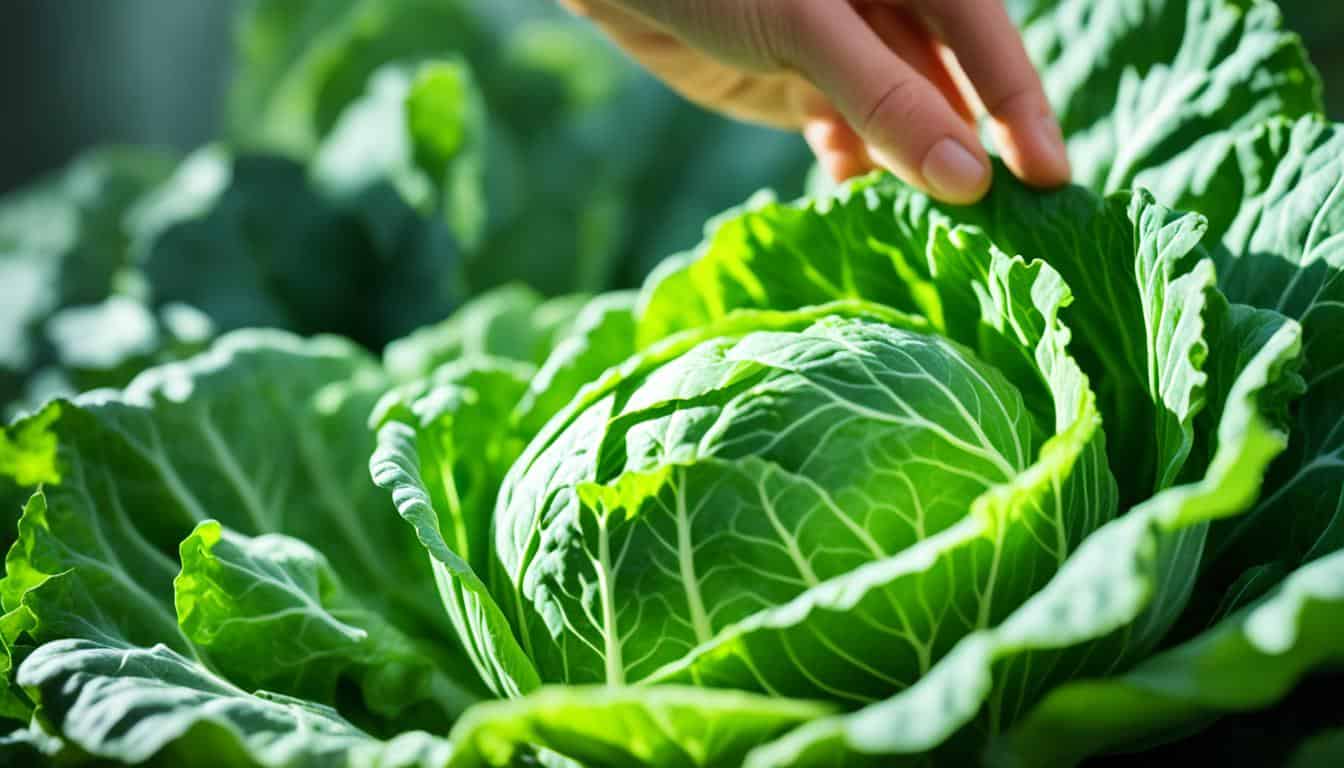
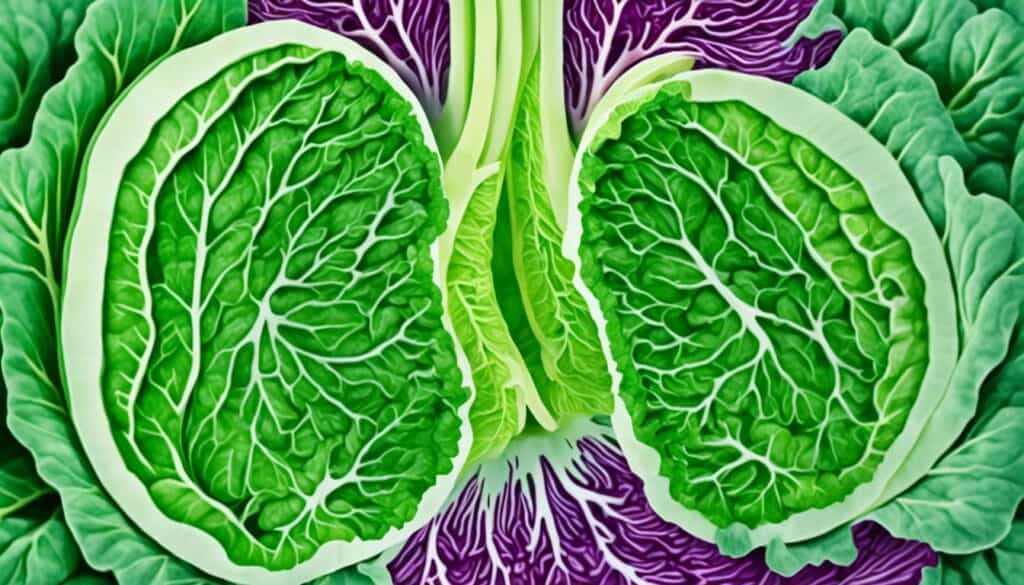
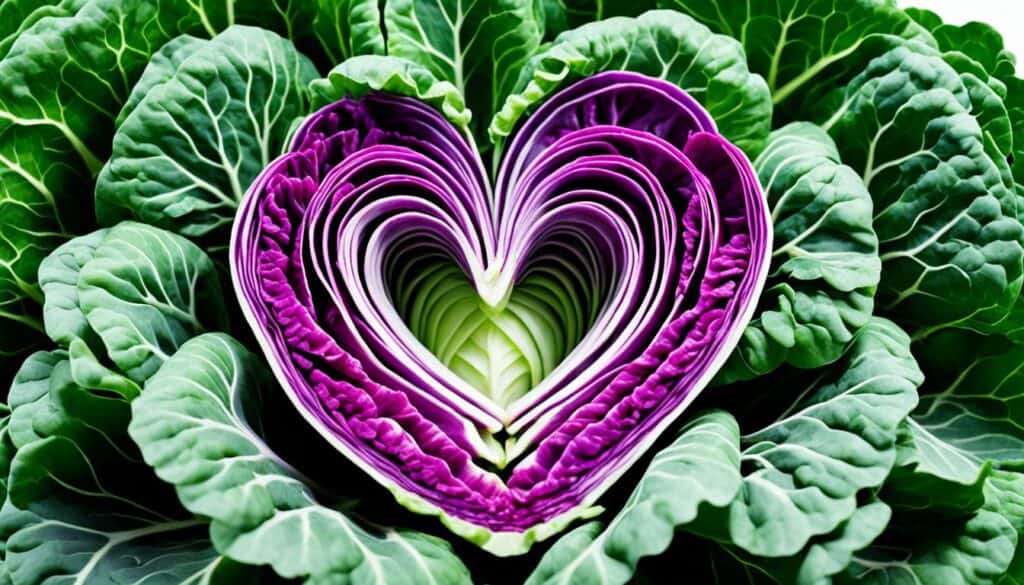
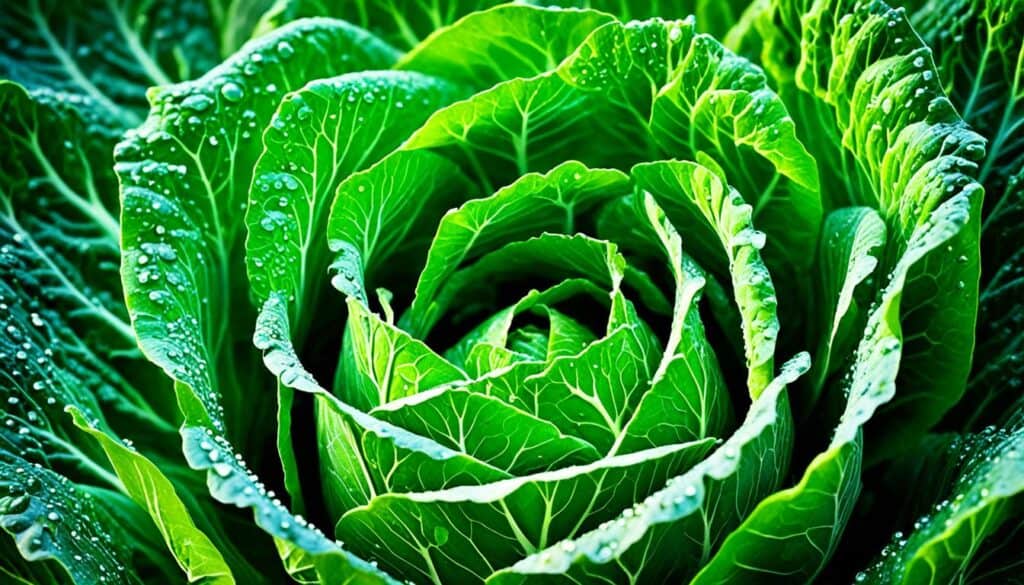
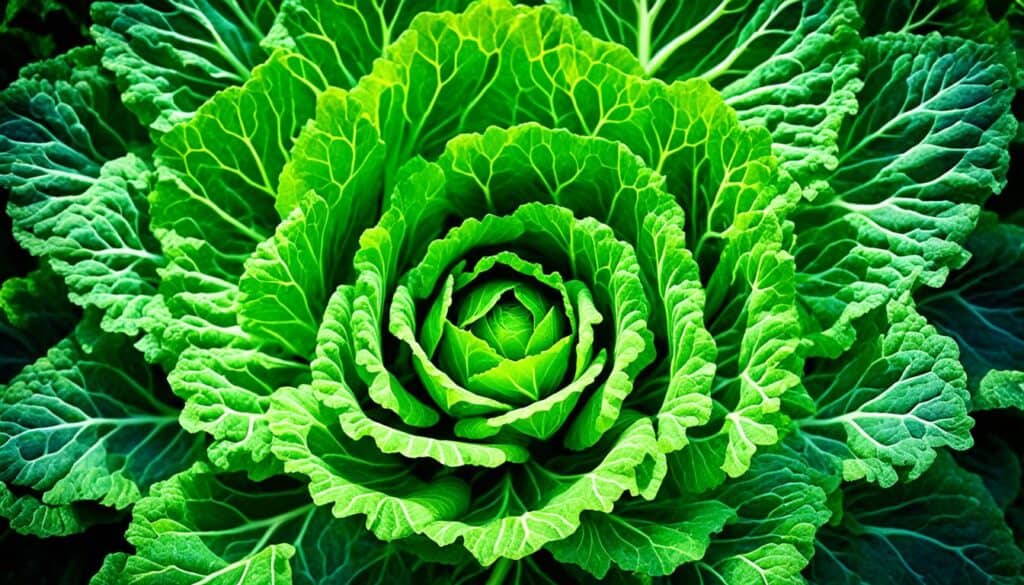




Leave a Reply